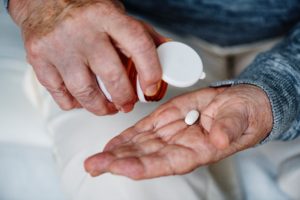It’s now become a commonly held notion that for the elderly, taking daily aspirin can be something of a cure-all.
However, as three recent studies have shown, the truth is much more murky. The studies, which are based on large scale clinical trials, have found that aspirin is not effective at helping to prevent heart attacks, dementia or physical disability.
 Perhaps even more disturbing is that research showed that the elderly were more likely to suffer from internal bleeding as a result of taking daily aspirin, and more deaths occur among those who took the aspirin, although the research indicated that those deaths were not statistically significant.
Perhaps even more disturbing is that research showed that the elderly were more likely to suffer from internal bleeding as a result of taking daily aspirin, and more deaths occur among those who took the aspirin, although the research indicated that those deaths were not statistically significant.
The results were published recently in the New England Journal of Medicine. According to cardiologist Jeffrey Berger of New York University School of Medicine, they “once again remind us that aspirin is not a benign drug.”
Berger says there’s a lot of misunderstanding of the original data in support of aspirin.
“The notion that everyone in older age should take aspirin to prevent a first heart attack or stroke,” Berger says, “is not born out from the evidence to date.”
stroke,” Berger says, “is not born out from the evidence to date.”
The clinical trials that provided the results, dubbed ASPREE or Aspirin in Reducing Events in the Elderly, included more than 19,000 adults.
Roughly half of those taking part were given 100 milligrams of aspirin per day and the other half a placebo pill for around five years.
As an indication of just how widespread the notion of regular aspirin consumption for health benefits has become, a 2015 study found that nearly half of 2,039 U.S. adults ages 45 to 75 who didn’t report a history of cardiovascular disease were regularly taking aspirin.
Despite the new findings, Dr. Berger notes that for those who already have had a heart attack or stroke or have coronary artery disease, aspirin could still be a potential life saver.
“If you’ve had a heart attack, it’s not debatable: Aspirin saves lives,” Berger says.
The problems start to occur when people view the drug as an ideal, side-effect free solution to multiple health problems.

 Daily Aspirin Use Could Present Serious Health Risks
Daily Aspirin Use Could Present Serious Health Risks


 “As Tears Go By” by Marianne Faithfull
“As Tears Go By” by Marianne Faithfull

 Funeral Favors Offer Visitors a Tangible Memento
Funeral Favors Offer Visitors a Tangible Memento















